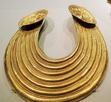Why you shouldn’t use AI models for information on Irish culture/’mythology’
Every time I return back from Ireland, I have a ‘Battle of the Books’ in terms of permitted baggage weight on international flights. Books, in large quantities, can be quite heavy of course, so I suppose the only good thing is that it acts as something of a natural restriction to excess reading.
The above image shows a selection from the load of reference books (and some fiction) I carried in my bag last time I travelled back overseas from home. This time around, the list is markedly reduced to four books (er … so far) but that doesn’t include the masses of research notes on work I’ve carried out, and the local history books (about 30) I’ve had to photograph as the libraries don’t allow photocopying due to the risk of damage.
After forty years, I now have an extensive cultural library that takes up half my office. Given that some of these are in Irish, and many are not on line – and probably never will be – its a far more dependable source than the internet or AI.
As a general rule, based on my experience to date, I believe that you should never use AI models (ChatGPT, ClaudeAI, Grok, etc.) to source information on ‘Irish Mythology’ – at least for the next few years, or so (although you could possibly say the same for much of the English-language internet). That’s because, at the moment, the AI models pull all their data on Irish culture uniquely from English-language online sources, particularly non-Irish sources such as Wikipedia – renowned for the junk it publishes with respect to Irish (and other) culture.
A few years back, for example, there was a bit of a scandal when it was discovered that of all the Wikipedia entries on Scottish Gaelic (of which there was quite a few) had been entered by an eighteen-year-old American who had absolutely no knowledge of Scottish Gaelic language or culture (although, clearly he had a big interest). The Wikipedia business model does not allow for any realistic vetting of specialist-area material such as culture. As a result, most of what I’ve seen on that platform wrt Irish culture suggests its not a source to be trusted beyond a very basic historical level.
Other information sources for Irish culture used by AI models include blog posts, amateur websites, and social media posts (the latter – Facebook, Instagram, Twitter, etc. – is probably the absolute worst place to get any kind of accurate information on Irish culture) often published by people who’ve never even been to the country.
If you are intent on using AI models to further your research on Irish culture however, my advice would be to use your prompt to restrict the information sources to information published by Irish universities. These entities are the ultimate experts in this area. That approach will help a little but, even then, the best part of the body of work published by Irish universities is not available online unless you’re willing to pay for it (and, even then, a lot of it is only available in non-digital form).
And that, I suppose, may be the basic rule when it comes to getting accurate and authentic information on Irish culture and ‘mythology’: “You get what you’re willing to pay for.”
And, unfortunately, most of the ‘free’ stuff is junk.



